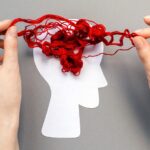Can voluntary assisted dying be an answer to the terror of living with dementia, and how can legislators quantify the unquantifiable?
We may have reached that moment in the voluntary assisted dying discourse when even Hannibal crossing the Alps might have said, “yeah, nah, let’s put that one in the too-hard basket” and turned his 37 elephants around.
By the end of this year, every Australian state will have working VAD legislation, with the ACT drafting legislation as we speak. In every one of those states a person must maintain decision-making capacity throughout the process.
Now, Victoria and WA, which passed VAD legislation in 2019, are about to undergo mandatory reviews of their laws.
Advocates for people with dementia want to see the laws updated so people with a dementia diagnosis, or those who fear a future dementia diagnosis, can avail themselves of VAD. Both responsible health ministers have flagged that they are not expecting big changes to the laws, however.
I have written before about my mother’s dementia. As I said then, it is an inexorable path to cognitive hell.
Between 2017 and 2019, as my father’s health deteriorated, Mum was endlessly busy driving him from doctors to physios to podiatrists to cardiologists to hospital and back. Even after my partner and I moved to their town to help out, Mum kept functioning well enough to push her own needs into the background.
But by mid-2019 it had become obvious that something was up. She needed a knee replacement and could not navigate conversations with her own doctors without me there to retain the details. An MRI and a visit to a geriatrician confirmed what I’d suspected for about six months – vascular dementia.
It didn’t come out of the blue. Mum’s father Jack died at the age of 59 in 1959 of what was then called “paralysis agitans”, an early term for Parkinson’s disease. Her mother Dorothy had early-onset Alzheimer’s, diagnosed at 59. She was dead at 64, in a locked ward at Wolston Park.
As a consequence, Mum spent her adult life terrified of cognitive decline. She did everything she could to fend it off – reading, crosswords (The Times cryptic, no less), Sudoku, long conversations and plenty of socialising. Dementia was a dark cloud hanging over her head from 1959 until that day 60 years later when the diagnosis came.
My mother was a teacher in her working days. A bloody good one. Her specialty was remedial education. There was nothing she loved better than helping kids with dyslexia and other learning difficulties to overcome hurdles to discover the joys and practical benefits of reading.
She devoured books. She loved words. She took delight in flogging me endlessly at Scrabble in our weekend-long tournaments. She was utterly relentless.
Today she cannot put together a sentence that makes any kind of sense. This bitch of a disease is robbing her of the thing she was proudest of: her words and the ability to use them.
Word salad doesn’t even begin to describe it. It used to be that I could discern her meaning from the context – her word substitution was close enough that we could have brief sensible conversations. Last night our phone conversation was a series of garbled words followed by silences as I tried to figure out what she was talking about.
In some kind of funny-not-funny twist her physical health (apart from that slowly dissolving brain matter) is remarkably good for an 84-year-old. Her heart and lungs came through a bout of covid last year in decent shape. She still walks (endlessly) without aids, although her gait is changing to the classic, shuffling, head-forward style of the elderly frail.
She receives some medication, and a little sedation, to help keep the terror at bay. Without them the paranoid delusions reduce her to a trembling deer in the headlights, convinced something awful that she cannot describe is coming for her.
So where does Mum’s experience sit in the context of voluntary assisted dying?
I know a couple of things for certain:
- If somehow Mum could step outside her reality and look at her life as it is now, she would be horrified. Everything in my 58 years of knowing her confirms that.
- If it were legal and societally acceptable, I would help her end her life today, no question.
That feels like a dangerous thing to say out loud, to be honest. I am, after all, her power of attorney, and her sole beneficiary (as far as I know).
The position my mother is in, and frankly, the position I am in, are the reasons why dementia advocates want something done to include this population of approaching half a million Australians to be considered in VAD legislation.
But how can it be done?
Everybody’s dementia is different. While there are certain markers along the path, the rate at which people with dementia hit those markers seems to be utterly unique, from my observation. Nobody could tell me at diagnosis how long Mum would be able to function independently, let alone what specific path she would follow, or how long she would live with the disease.
At what point does a person with a dementia diagnosis stop being capable of making decisions about their own autonomy? How can that blurred, ever-shifting line in the sand be incorporated in meaningful legalese that would help them get relief from this disease?
And what about people like me and my partner? We both have dementia and cognitive decline in our family histories. How can we be helped to end our lives at a time of our choosing, should that diagnosis come along? And how can we know how much meaningful happy life we will get post-diagnosis, before we feel like death is the best solution?
Is the answer to make advanced care directives utterly legally binding and watertight, so I can say, ‘if I have a diagnosis of inexorable, uncurable cognitive decline, I can be helped to end my life at the time and in the manner of my choosing’?
Part of the answer may be better dementia care, and there is no question better dementia care is needed.
But short of a definitive early intervention that conclusively stops decline or slows it to a slower-than-snail’s crawl – and despite the recent approval of donanemab, I remain unconvinced one exists – nothing changes the reality of the chaos inside a person with dementia’s head, regardless of how well their carers are doing their job.
And that is what is terrifying. Does being comfortable, safe, and well cared for offset not knowing who I am, where I am, WHY I am and why I am alone with my warped memories?
Not in my book, although good care eliminates a lot of external problems, to be sure.
I don’t have the answers to these questions, other than a certain knowledge that I am terrified of the life my mother is leading.
But these are questions legislators must grapple with soon, if they haven’t already.





